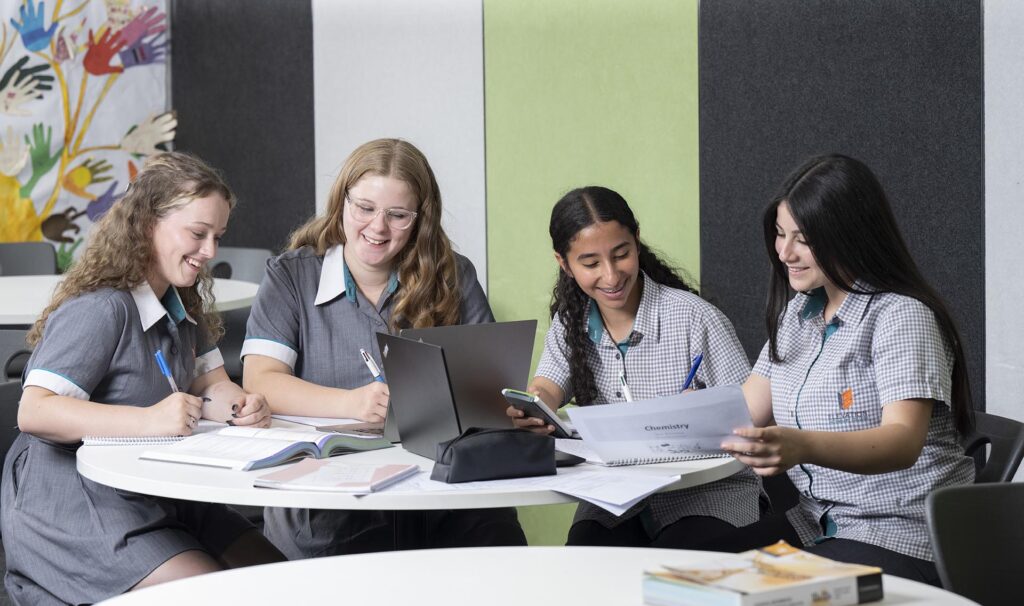The end of Term 1 can often be a nervous and exciting time for students because there is so much assessment going on! In addition to NAPLAN, most of our VCE students have just received their first SAC results back, and all students have received their grades for their first Learning Tasks, with Year 7s receiving a grade on an assessment task for the first time in secondary school.
Regardless of whether students are in Year 7 or 11, students rarely feel excited or happy about a summative (final) assessment task so it’s important that teachers and families are able to help them approach these tasks and put them in perspective. Here are some of the ways we talk about assessment tasks with students, including why we do them and how to use them to your advantage.
There are many different ways students are assessed, not just tests and assignments
Schools have multiple methods to assessing students and different schools will have different approaches to weighing and sharing these assessments with students. We don’t just assess students on Common Assessment Tasks (CATs). At Elevation Secondary College, all students in Years 7 – 10 are assessed on their overall demonstration of knowledge and skills in the Victorian Curriculum. Teachers are constantly monitoring student progress and we draw on lots of different pieces of evidence to make a judgment about what the student has achieved. For example, a Visual Arts teacher at the school will use students’ oral answers to questions posed in class, small drawing or sketching exercises students use to practice, draft work, written answers as well as assessed artworks and formal reflections. Teachers are constantly looking for signs that students have learned when they judge a student’s ‘level’ on the Victorian Curriculum.

However, at Elevation Secondary College we regularly rank and assess student work using grades and percentages. Our explicit aim as a College is to prepare students for their VCE and post-secondary pathways and regardless of what they choose, ‘high-stakes performance’, ‘timed’ and ‘ranked’ assessment will be present in our students’ further study and future careers to varying extents. We want students to know that assessment – whether it is an exam, assignment, performance review or a competency test – is a normal part of life and something we should prepare for.
Angela Lane, Sonia Loudon, Kyle Schutz & Andrew Stock
Assistant Principals